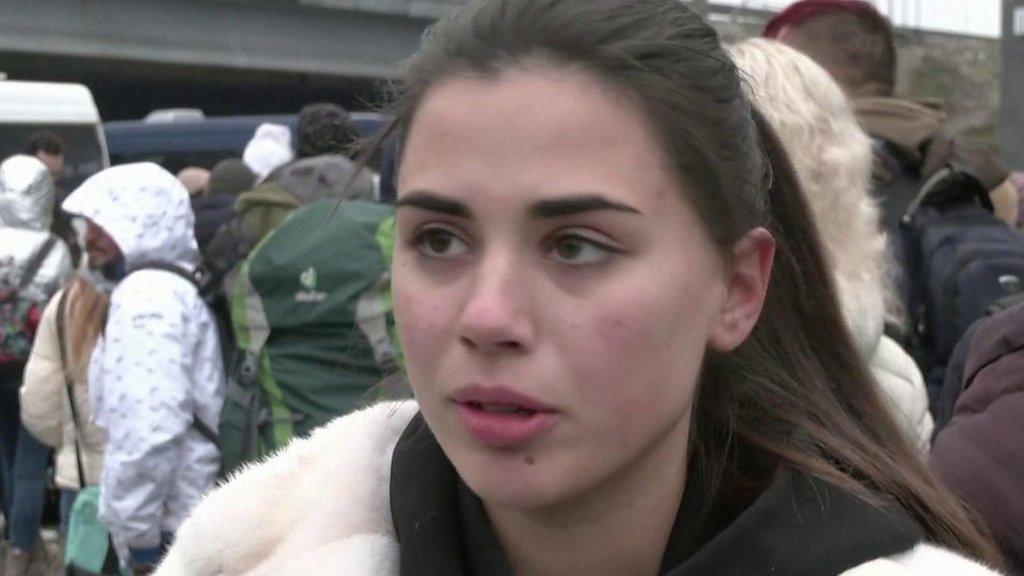Ukraine-Russia invasion: Europe prepares for wave of refugees
- Published
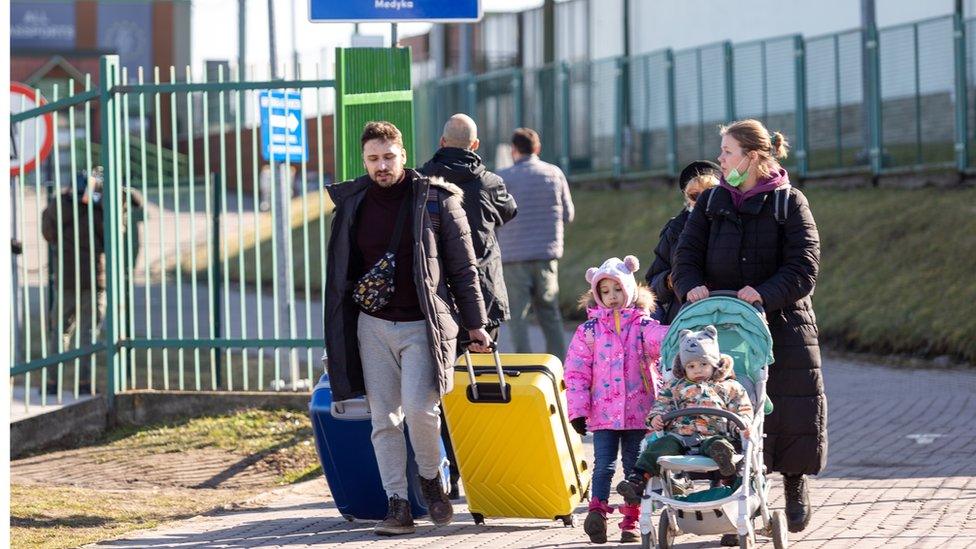
The first wave of migrants cross from Ukraine into Medyka, Poland on Thursday
Ukraine's neighbours are preparing for an influx of refugees fleeing Russia's invasion of the country.
As Russian air strikes hit overnight, many packed up and left Kyiv for the countryside or the border with the European Union.
Traffic jams clogged the roads out of some cities, and some walked on foot into Poland and Hungary.
The UN refugee chief warned that the humanitarian impact will be "devastating".
"We are particularly worried about displacement - about people on the move," Filippo Grandi told the BBC's Lyse Doucet, who is in Kyiv.
"We estimate that more than 100,000 must have already moved out of their homes in Ukraine seeking safety in other parts of the country," he said, speaking from Geneva. Mr Grandi added that his agency had stockpiled supplies to provide aid to people in Ukraine - but it could not act while military action was still happening.
Ukraine's European neighbours say they are ready to receive refugees fleeing the country of 44 million people - one of the most populous in Europe.

Russia attacks Ukraine: More coverage
THE BASICS: Why is Putin invading Ukraine?
FROM KYIV: "There is no safe place any more"
FROM MOSCOW: Shock and support in Russian capital
IN MAPS: How Russia carried out the invasion

Poland says it is preparing hospitals for an influx of wounded Ukrainians, and setting up reception points for refugees along its border.
Interior minister Mariusz Kaminski said he was preparing for a "wave of refugees".
"Poland is a safe country for our citizens, it will also be a safe country for our neighbours," he told Reuters news agency.
Moldova, to Ukraine's south, said it had already seen thousands of people flee Ukraine, including before Thursday's invasion began.
"We expect much larger numbers," Roland Schilling, the regional representative of the UN Refugee Agency, told the BBC.
"We are aware of large queues forming at border crossings. We are preparing our humanitarian response together with other UN agencies."
Slovakia and Hungary are also sending troops to the border to deal with the expected influx of refugees.
Thursday has seen a steady trickle of refugees appear at the Hungarian and Polish borders, as families cross on foot with their suitcases.
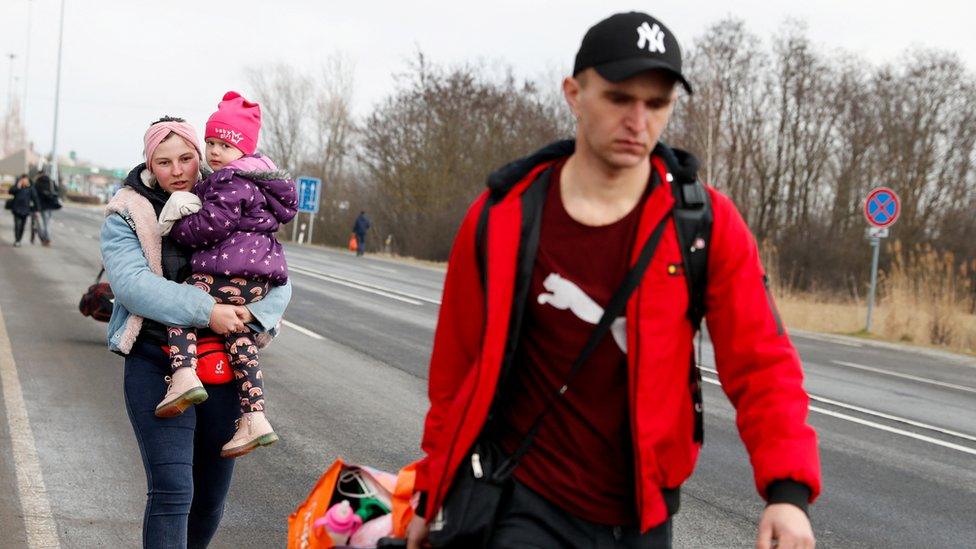
Families could also be seen reaching the Hungarian border on foot
But numbers remain relatively small, as many are having trouble leaving Ukraine's major cities.
Victoria Vota woke up at 5am in the north-eastern city of Kharviv to what she called "bombing sounds".
"My neighbours were ringing my doorbell telling me it's time to leave and maybe evacuate from the city," she said.
But amid mixed messages about taking shelter at home, "we're not sure if it's safe to evacuate", she said. Some of the roads out of the city came to a standstill later in the morning.
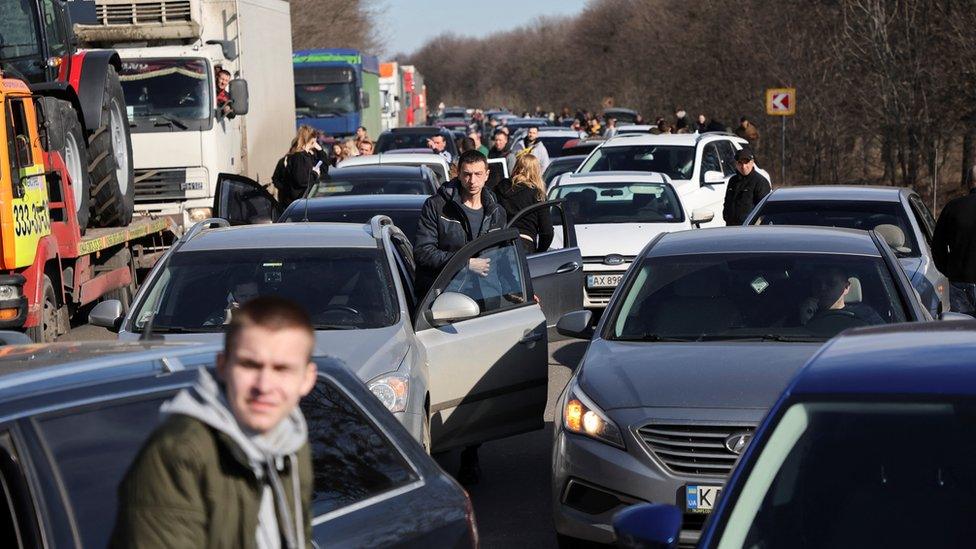
Traffic jams leaving Kharkiv were so heavy people left their cars as they waited
Some 400km (250 miles) away in the capital, Kyiv, Tetiana Kashtanova also awoke to explosions. "Many people are trying to leave right now so we have a giant traffic jam," she explained - but "if there is an option for us to leave to the West we will take it".
She, like many others, initially took shelter underground, in a car park. Others took to the city's subway system seeking refuge.
Many have turned up at bus and train stations, trying to buy tickets to locations farther to the west, away from the front lines in the self-declared breakaway republics in Ukraine's east.
Watch: Kyiv residents explain why they're fleeing the Ukrainian capital
Some were leaving the major cities for rural towns, or to go home and re-join family members elsewhere.
Air travel is no longer an option, as Western airlines are completely avoiding the country's airspace, and Kyiv's international airport was reportedly one of the first targets of Russian strikes.
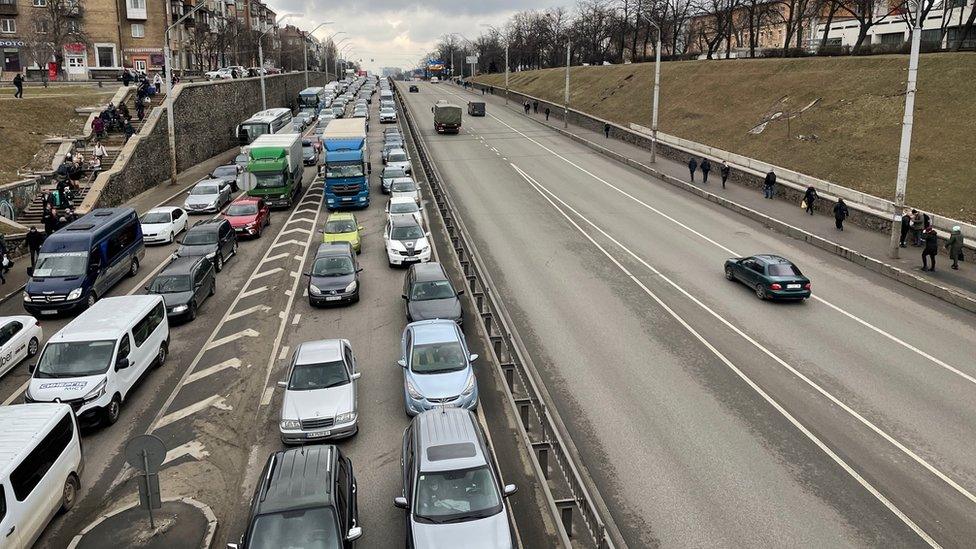
Peremohi street in Kyiv was jammed in one direction only as people attempted to leave the capital
On the streets of the capital, queues formed at cash machines, petrol stations and supermarkets as some prepared to remain in their homes.
But other Ukrainians vowed to take up arms.
Russia has demanded that Ukrainian armed forces lay down their weapons, but the Ukrainian armed forces have released photographs of queues forming outside buildings as volunteers line up to join the army.
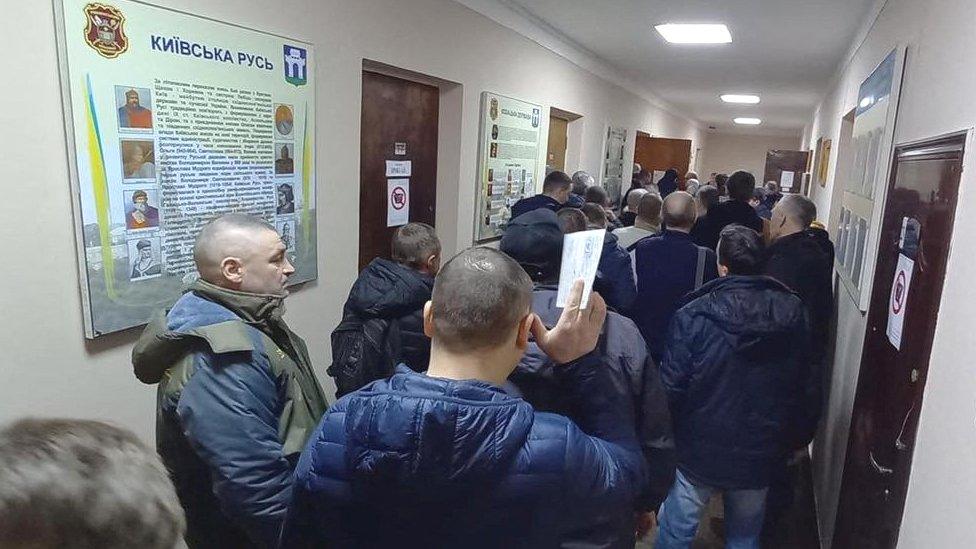
Volunteers wait in line to join the Ukrainian Armed Forces in Rivne, Ukraine, in this Ukrainian military photo
Yet some of those fleeing are seeking to avoid joining the military through conscriptions.
On the border with Hungary, two members of the ethnic Hungarian minority in western Ukraine told Reuters news agency that they feared being drafted into Ukraine's military to aid the defence.
"No one wants to get conscripted, no one wants to die," said Tamas Bodnar, who was crossing with his brother Csaba. "It's clear that those who can, they flee."
At the same checkpoint, a woman with her 15-year-old son said she was afraid the age limit for conscription could be lowered.
She planned to send him to relatives in Hungary - while she returned to work in a town near the border.
"I am afraid they will take my son," she said.
Related topics
- Published24 February 2022
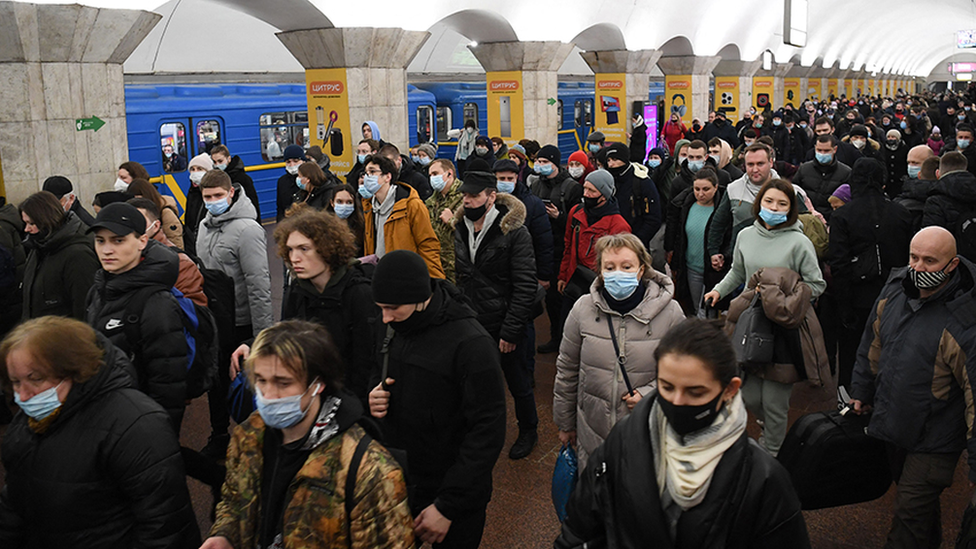
- Published24 February 2022
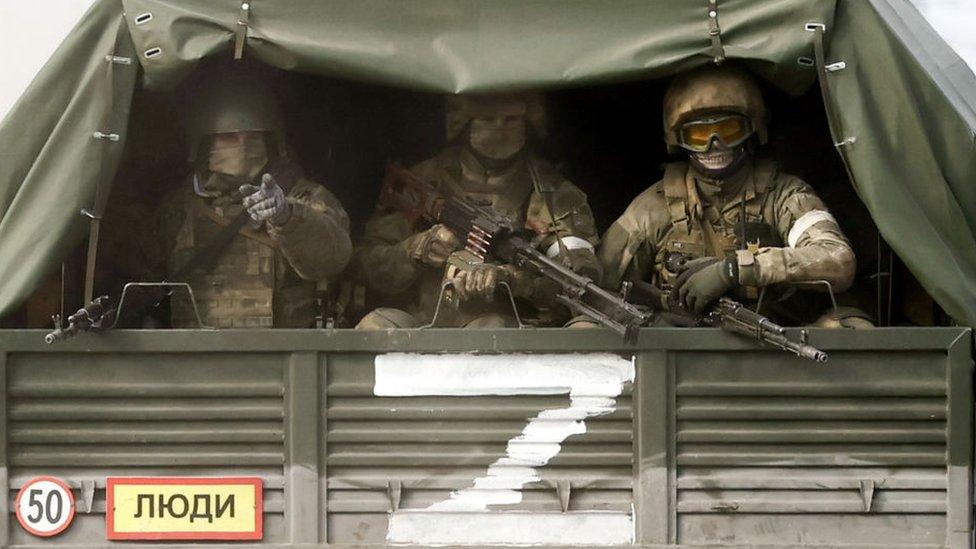
- Published24 February 2022
